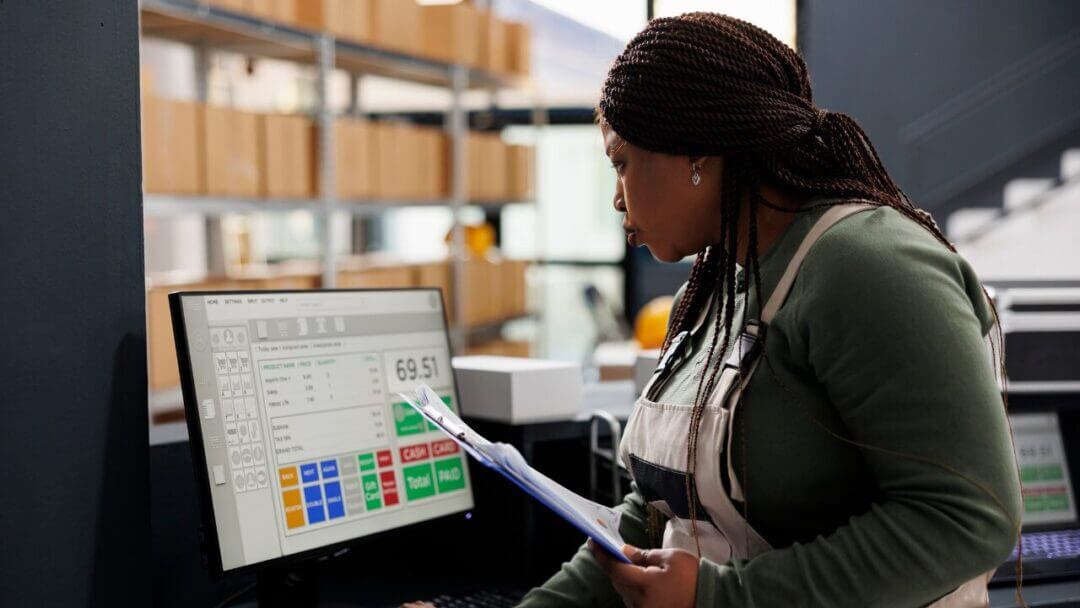Language:
Bookkeeping Guide: Everything Amazon FBA Sellers Need to Know

If you’re diving into the world of Amazon FBA, you’ve stepped onto a platform overflowing with potential and opportunity.
But as your business begins to flourish, so does the importance of mastering the art of bookkeeping. By streamlining your finances with doola Bookkeeping, you’ll set yourself up for sustainable growth tomorrow.
Whether you’re a seasoned seller or just getting started, understanding the ins and outs of financial management can make or break your entrepreneurial journey.
In this comprehensive guide, we’ll explain everything you need to know about bookkeeping, specifically for Amazon FBA sellers.
From tracking expenses and managing inventory to navigating taxes like a pro, we’ve got you covered!
Let’s turn those numbers into profit!
What Is Amazon Bookkeeping? Why Is It Important?
Bookkeeping for Amazon FBA, also known as Fulfillment By Amazon, involves keeping a detailed record of sales, purchases, inventory costs, shipping costs, advertising payments, and other financial activities of merchants/sellers.
As a seller on the Amazon platform, you are responsible for managing your taxes and reporting your income to the government.
Bookkeeping ensures that all sales and expenses are accurately recorded, making it easier to file your taxes at the end of the year.
It also reduces the risk of errors or missing any deductions that could result in penalties or fines from tax authorities.
Another benefit of bookkeeping is that you can easily track your expenditures on acquiring inventory, including product costs, shipping fees, and Amazon storage fees.
This information is crucial for determining the actual cost of goods sold (COGS) and ultimately calculating accurate profits.
Bookkeeping records also provide accurate financial data, such as sales trends, expense patterns, and cash flow history, which can help you understand your business’s performance.
By regularly reviewing your books, you can identify which products are generating higher profits and which ones may not be performing as well.
This information can then be used to create budgets and make projections for future sales and expenses, which can help you plan and manage your finances more effectively.
Basic Bookkeeping Terms You Should Know as an Amazon FBA Seller
Receivable Accounts
Receivable accounts refer to the payments that you have yet to receive from the customer’s end. It represents the amount owed to you by customers who have not made their payments yet.
For products you sell, you collect the “receivables” and track and monitor them to ensure the money arrives on time.
Therefore, it is important to keep a record of these receivables to maintain a healthy cash flow and ensure timely fund collection.
Accounts Payable
Amounts payable refer to the money debts that you owe to suppliers or vendors. These can include expenses such as raw materials, packaging supplies, shipping fees, etc.
Sellers must keep track of these payables to manage their cash flow effectively and avoid late payment fees.
Inventory

Inventory is the stock of products that are owned by your business yet to be sold.
For Amazon FBA sellers, this includes both goods stored at Amazon’s fulfillment centers as well as those in transit from suppliers or manufacturers.
While these are assets owned by your business, they can become expenses if left unsold. Therefore, accurate bookkeeping is crucial for managing stock levels and avoiding stockouts or overstocking.
Purchases
Purchases refer to any goods or services acquired by a business that works as the cost of goods sold (COGS). You can determine your overall profits by subtracting purchases from sales.
Since most expenses in COGS can be claimed for tax deduction purposes, you must keep detailed records of all business-related purchases, including office supplies, equipment, subscriptions, and others.
Loan Payable
If you have taken out a loan to start or run your Amazon FBA business, you will need to keep track of your debts.
This is what you owe back to the lender, including both the principal amount and any interest or fees associated with the loan.
It is important to have a clear understanding of their loan payables in order to budget for repayments and avoid any financial difficulties properly.
Sales
Sales refer to the total revenue generated from selling products on Amazon. Almost every Amazon business needs to keep a proper sales record.
This data can also be used for tax purposes and other financial reporting. This will help you show what cash you have with you and where your business is.
How to Choose the Best Bookkeeping Service as an Amazon FBA Seller

Unlike traditional businesses, e-commerce-based businesses have more complex implications and obligations.
This means Amazon sellers like you have a few extra things to consider when it comes to bookkeeping.
Choose the Right Bookkeeping Software
To ensure your books are always up to date, you need bookkeeping software that is easy to use, automatically records and categorizes transactions, and helps with tax management.
Since you’ll likely use a double-entry accounting system, you will need a more comprehensive doola Bookkeeping system that allows you to track what you need for income statements, balance sheets, and cash flow statements.
It will also provide you with monthly statements that help you quickly identify how much you’re making and keep track of the overall health of your Amazon business.
Comply with Tax Requirements
When you sell in multiple states, you need bookkeeping software that can help you keep sales tax up to date in your books. You may also need assistance to prepare documents you will require at tax time.
doola Bookkeeping is well-versed in sales tax requirements and federal tax laws, which includes knowing what taxes you are responsible for collecting and paying.
We also help you generate accurate and timely reports for tax filing purposes, as well as claim any deductions or exemptions that may apply to your business.
Best Practices for Amazon Bookkeeping
Keeping accurate and organized financial records helps you track your profits and losses, ensure compliance with tax laws, and make the process of filing taxes much smoother.
But first, you need to learn some key bookkeeping practices that every Amazon FBA seller should follow:
1. Chart of Accounts
Your chart of accounts is the index of all categories you will use to organize your transactions. It offers an overview of every area of your business that spends or makes money.
The best practice is to categorize your transactions on a weekly or monthly basis. You can also use doola Bookkeeping software, which connects bank accounts and automatically categorizes where you are spending and earning your money.
2. Bank Statements Reconciliation
The most critical part of bookkeeping is reconciling transactions for accurate financial reporting and submitting documents for tax season.
It helps you identify any errors and inconsistencies between your banks and credit card statements.
Instead of doing this manually, you can use doola Bookkeeping software to automatically track and record these transactions to ensure everything is accounted for.
3. Tax Compliance
For businesses in the United States, tax season can be a stressful time. The IRS can charge you fines, garnish your wages, take your assets, and take legal action for significant offenses.
Since you can’t file your taxes without knowing how much you’ve made, you need to prepare year-end reports to simplify tax filings with doola bookkeeping.
Specific Considerations for Amazon Accounting
Many small business owners use a basic accounting system, which isn’t necessarily a good fit for Amazon FBA sellers.
So if you’re searching for a bookkeeping and accounting system for your Amazon business, here are the things you’ll need to keep in mind.
Make Sure Your Bookkeeping System Supports Your Accounting Method
Before choosing a bookkeeping service, you must choose between cash-basis and accrual-basis accounting.
Cash-basis accounting records income and expenses when they are received or paid, while accrual-basis accounting records them when they are earned or incurred.
As an Amazon FBA seller, you need a comprehensive bookkeeping solution from doola that supports accrual basis accounting, which provides more benefits and a far more accurate picture of your finances.
Manage The Cost of International Sales
If you sell your products internationally through Amazon’s Global Selling program, a bookkeeping service can help you with international sales and understand the tax implications.
International sales can complicate your bookkeeping and increase the cost of your services, so make sure to ask about this aspect before hiring a bookkeeper.
For example, if you’re selling in the United States and the UK through local Amazon sites, you’ll need to track income and expenses with a bookkeeping system for both of those channels separately.
Common Bookkeeping Mistakes Amazon FBA Sellers Make

1. Failure to Separate Personal and Business Expenses
One of the most common bookkeeping mistakes made by Amazon FBA sellers is failing to separate personal and business expenses.
While it can be tempting to use your credit card for business purchases, co-mingling expenses can quickly become a nightmare during tax season.
Therefore, it is crucial to set up separate business bank accounts and credit cards for your business to identify which expenses are deductible and which are not.
2. Not Tracking Inventory Correctly
Many new sellers need to account for their cost of goods sold (COGS) when recording sales in their books.
This incorrect calculation can lead to inaccurate profit margins and result in under or overpaying taxes.
To avoid this mistake, you should track every item that goes into Amazon’s fulfillment center accurately.
Keep a record of all associated costs, such as packaging materials, shipping fees, customs charges if applicable, etc., when calculating COGS.
3. Neglecting Sales Tax Obligations
Many states require online retailers like Amazon FBA sellers to collect and remit sales tax on eligible transactions within their borders.
Unfortunately, some sellers overlook this responsibility until they receive a hefty bill from state tax agencies or face penalties for non-compliance.
To prevent this costly mistake, it is vital to research and understand your sales tax obligations in each state or get the help of a tax professional from doola to ensure compliance.
Bookkeeping Services for Amazon FBA: A Quick Checklist
Since bookkeeping is an essential aspect of Amazon’s business, here is a quick checklist that every Amazon FBA seller should follow when it comes to bookkeeping services.
1. Understand Your Tax Obligations
You are responsible for paying income tax on your profits and fulfilling sales tax requirements in states where you have nexus.
So, it is crucial to understand your tax obligations as an Amazon FBA seller.
2. Choose an Accounting Method
Small businesses use two accounting methods: cash basis and accrual basis.
Consult with our tax experts to determine which method works best for you.
3. Set Up Separate Accounts
It is recommended that separate business bank accounts be set up, as this makes tracking income and expenses easier.
4. Keep Track of Your Inventory
As an FBA seller, you must keep detailed records of inventory purchases and sales made through the platform.
5. Record All Income and Expenses
Keep track of all incoming payments from Amazon sales and any expenses related to your business, such as advertising costs or supplier fees.
6. Categorize Transactions
Categorize every transaction properly to help you stay organized and make tax preparation more manageable.
7. Document Everything
Proper documentation, such as receipts, invoices, and statements, will ensure that there is evidence for all financial transactions in case of an audit.
8. Reconcile Financial Statements Monthly
Reconciling bank statements with accounting records every month will help identify any discrepancies or errors early on.
9. Utilize Bookkeeping Software
Using an all-in-one bookkeeping software like doola Bookkeeping can make bookkeeping more efficient and accurate.
You also get support from a professional bookkeeper or accountant to assist with your bookkeeping needs and ensure your financial records are accurate and up-to-date.
Want to Sort Your Finances as an Amazon FBA Seller? doola Bookkeeping Will Help

As an Amazon FBA seller, you may encounter a constant influx of sales, expenses, and fees, which can be challenging and overwhelming.
Thankfully, doola’s Bookkeeping Services covers everything needed to manage the finances of an Amazon FBA business.
From recording daily sales and expenses to reconciling accounts, we will ensure that your books are accurately maintained at all times.
This level of organization not only saves you time but also gives you peace of mind, knowing that your finances are in good hands.
We understand that you need more than just basic income statements to track the performance of your business accurately.
That’s why our financial reports include detailed breakdowns of revenues, expenses, refunds, returns, reimbursements — basically every aspect that affects your bottom line as an FBA seller.
In addition to traditional bookkeeping tasks, doola offers specialized tax filing services.
We know how complex tax laws can be, which is why we work closely with you throughout the year to minimize tax liabilities while staying compliant with regulations.
Book a demo with us to learn more about our services and how we can simplify bookkeeping for your FBA business.



